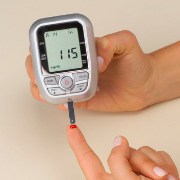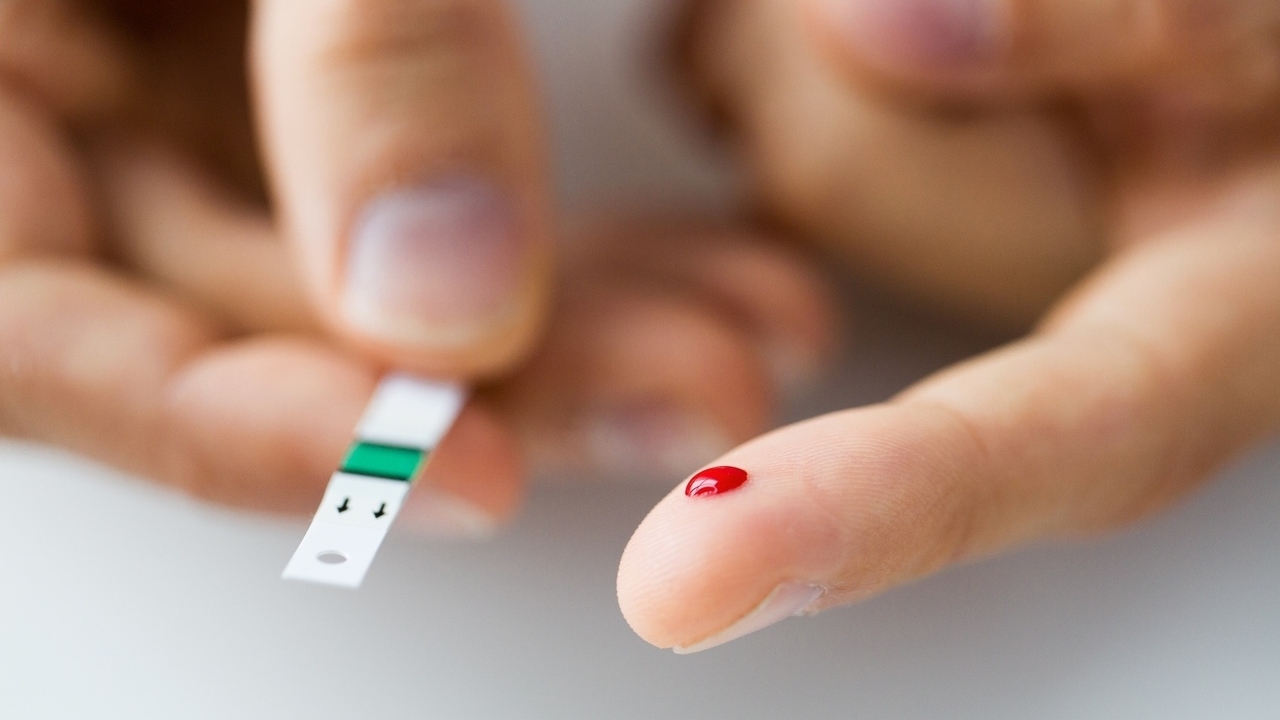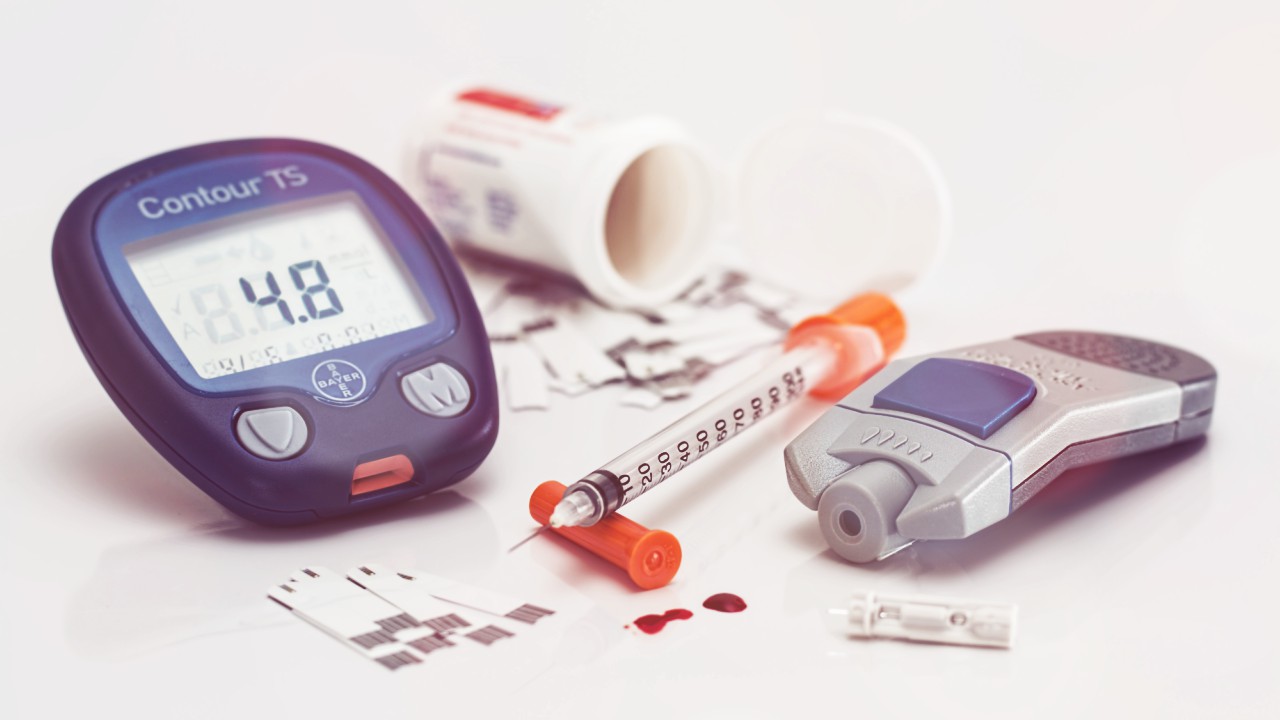 Photo: Getty Images
Photo: Getty Images
Monitoring blood glucose for the diabetic is a regularly-performed and essential ritual that involves measuring blood glucose (sugar) levels with a portable blood glucose meter.
A blood glucose meter is used with lancets, test strips and a logbook. A lancet is a small needle that is generally used to produce a drop of blood with a prick of the finger. Some monitors can be used with other parts of your body than your fingers.
After you've washed the area that is to be tested with soap and water, or after swabbing the area with alcohol, it's time for the lancet. A drop of blood goes on a test strip with a chemical which helps measure how much sugar or glucose is in your blood.
Insert your test strip into the glucose meter. You can read the digital number that will then appear on its monitor.
Desired numbers when using your blood glucose meter before meals fall between 70 milligrams per deciliter (mg/dL) and 130 mg/dL. After eating, healthy blood sugar levels are under 180 mg/dL.
When your number is too low, your blood sugar is also too low. This is known as hypoglycemia. You'll know it's time to eat something. This may also affect the amount that you will be needing in your next dose of insulin.
When your number is too high, so is your blood glucose. This is called hyperglycemia. This lets you know that you need to take more insulin.
The frequency with which you should be testing your blood sugar levels will depend on how well-regulated your blood glucose levels are in general,. It will also depend on what type of medication you use.
During times of illness or extra stress, you may find this necessitates more frequent testing. If you are pregnant, you will need to check blood sugar levels more often as well.
Your logbook will help you keep track of when you've taken insulin and any other medications. You can record what food you've eaten, and your activity level for the day. Writing these things in your logbook on a regular basis will help you to recognize any patterns that have been playing a part in your need for insulin.
Blood glucose meters come in different sizes, varying from three to four inches long, and weighing between one and five ounces according to About.com.
Blood glucose meters have built-in memory, ranging anywhere from 10 - 125 tests, up to 3,000 tests. Most can record 250 - 500 tests in their data banks.
Sources:
Blood glucose monitoring. Nlm.nih.gov. Updated April 19, 2010. Retrieved Nov. 20, 2011.
http://www.nlm.nih.gov/medlineplus/ency/article/003438.htm
Diabetes: Monitoring Your Blood Sugar Level. Familydoctor.org. Updated Oct, 2010. Retrieved Nov. 20, 2011.
http://familydoctor.org/familydoctor/en/diseases-conditions/diabetes/tre...
How to Choose a Blood Glucose Meter. About.com. Retrived Nov. 20, 2011.
http://type1diabetes.about.com/od/technologyandequipment/qt/choose_meter...
Visit Jody's website and blog at http://www.ncubator.ca and http://ncubator.ca/blogger
Reviewed November 21, 2011
by Michele Blacksberg RN





Add a Comment2 Comments
I've had diabetes my whole life and monitoring my blood sugar has always been a source of stress. Then I found glucose meters, but the cost can add up. Here's a site that offers .
November 22, 2011 - 1:38pmThis Comment
All diabetes Type 2 comes from stubborn insulin When you reverse stubborn insuln diabetes goes away. Most diets DO NOT reverse stubborn insulin. All Type 2 diabetes is stubbborn insulin. When New Castle researchers used a Specialized diabetes diet they reversed their diabetes drug free This was on Ourmidland News See here http://www.ourmidland.com/voices/community/article_b59d1e3a-025b-11e1-b4ba-1bf79c292b4f.html
November 21, 2011 - 9:12amThis Comment